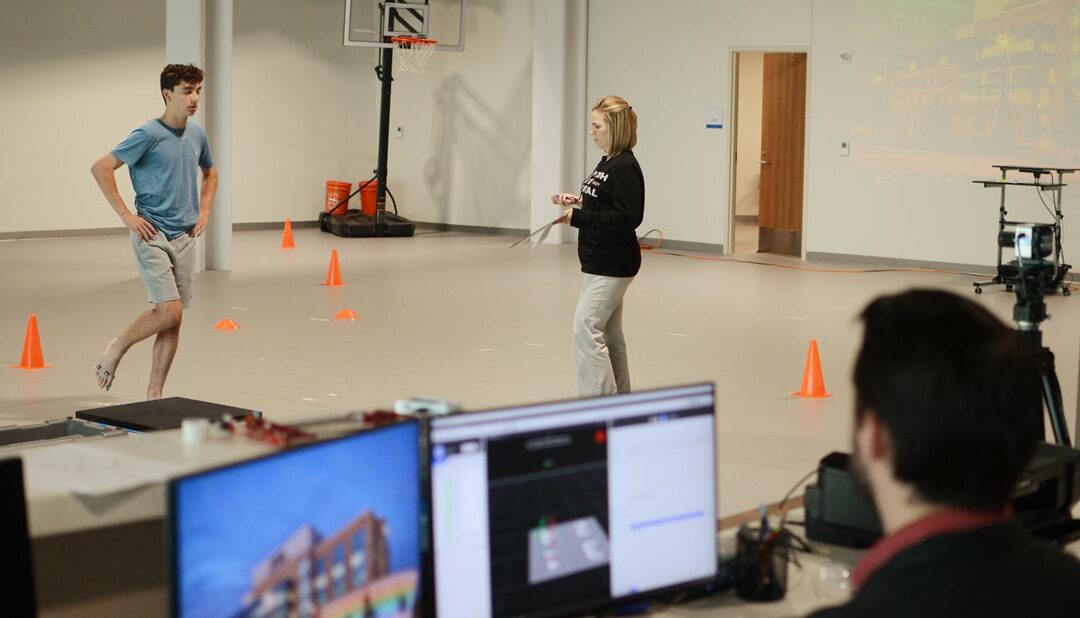Balance testing is commonly used to assess impairment and recovery after a sport-related concussion in the clinic setting. Measuring imbalances while going through various stances combined with both a firm and foam surface can provide valuable information in the evaluation of a concussion. Scottish Rite’s study, recently published in Brain Injury, was designed to look at how balance performance differed from diagnosis to return-to-play among athletes recovering from a concussion. A standardized test called the Balance Error Scoring System (BESS) is easy to perform in a clinic setting, but it may not provide the level of detail needed for a research study evaluating balance after sustaining a sport-related concussion. By conducting balance testing using the Movement Science Lab’s force plates, or special areas built into the flooring that are sensitive to the weight and force applied, researchers could correlate the BESS results with a highly objective center-of-pressure (COP) measure.
Principal investigator and director of movement science Sophia Ulman, Ph.D., explains the differences between these tests. “The BESS is a subjective test that requires clinical training and practice,” she says. “Alternatively, the force plate used to assess COP provides very specific, multidimensional measures that allow for discrimination of small differences in balance performance.”
It has been well established that there is an increased risk of prolonged symptoms as well as potential for compounding injuries if an athlete returns to play too soon after a sport-related concussion. Although balance is not the only measure used to determine readiness for sport, the proper assessment of balance is an important factor in this decision making. After reviewing data for these two tests in 40 patient-subjects, our team noted that the commonly used BESS test may not provide the information needed to assist with balance assessment as symptoms improved.
What does this mean for providers managing sport-related concussions?
Despite the volume of studies on the topic, the Sports Medicine team is continuing to learn about managing sport-related concussions in young and growing athletes. Pediatric sports medicine physician Shane M. Miller, M.D., says, “Until there is a better test to use in the clinical setting, we will continue to use tests like the BESS to do our best to assess balance improvement and identify the right time to return athletes to their sport. I suspect this will be a conversation for many years.”
The study, “Improvement in balance from diagnosis to return-to-play initiation following a sport-related concussion: BESS scores vs center-of-pressure measures,” was published in July 2022 in Brain Injury, the journal of the International Brain Injury Association.

